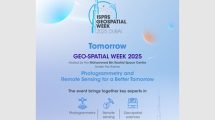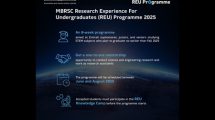 Scientists and student alike were thrilled by the results from a DNA experiment that was performed on the International Space Station (ISS) in September. UAE student Alia Al Mansoori’s research was conducted through the UAE Genes in Space competition, organized by the UAE Space Agency and held in partnership with Boeing and The National.
Scientists and student alike were thrilled by the results from a DNA experiment that was performed on the International Space Station (ISS) in September. UAE student Alia Al Mansoori’s research was conducted through the UAE Genes in Space competition, organized by the UAE Space Agency and held in partnership with Boeing and The National.
To win the UAE Genes in Space competition, 15-year-old Al Mansoori proposed an experiment to be done aboard the ISS to detect gene expression changes induced by stress, such as that caused by cosmic radiation and microgravity. Al Mansoori’s experiment, performed by NASA astronaut Peggy Whitson, successfully detected stress-induced gene expression using a fast and simple technique known as reverse transcription polymerase chain reaction (RT-PCR). Her research could lead to methods for monitoring cellular stress in astronauts and assessing the impacts of long-term space travel at the molecular level.
Al Mansoori, of Al Mawakeb School Al Barsha in Dubai, was the first student to win an edition of the contest outside the United States. She saw her research proposal selected by a panel of scientific experts. With the support of the UAE Space Agency, she and her family visited the UAE Embassy and Boeing offices in Washington, D.C., and she traveled to Florida in August to see her experiment launched aboard NASA’s Cargo Resupply-12 mission, also known as CRS-12.
H.E. Dr. Ahmad bin Abdulla Humaid Belhoul Al Falasi, Minister of State for Higher Education and Chairman of the Board of Directors of the UAE Space Agency said: “This latest success represents the significant progress being made by the UAE in the field of space science education. The UAE Genes in Space competition contributes significantly to our vision of creating a generation of young space pioneers capable of leading regional efforts to explore and utilize space peacefully. This is a central aspect of our commitment to assisting the UAE in its transition to a knowledge-based economy, in line with UAE Vision 2021.”
H.E. Dr. Mohammed Al Ahbabi, Director General of the UAE Space Agency, said: “One of our core mandates is to develop national and regional capabilities in advanced STEM fields and space sciences. Alia’s success during the inaugural edition of the UAE Genes in Space is a reflection of the progress that has been made throughout our burgeoning space sector. Competitions such as these are a perfect opportunity for us to engage with younger generations and inspire them to pursue a STEM education and take advantage of the numerous opportunities within the space and aerospace sectors.”
Originally founded in the United States by Boeing and miniPCR, the competition offers students in grades 7 through 12 the opportunity to develop DNA-based experiments that could be performed on orbit by astronauts aboard the ISS. To ensure the experiment is successful performed, the UAE Genes in Space project has support from sponsors and partners such as The National.
Al Mansoori said the UAE Space Agency inspired her by offering the opportunity to potentially help future astronauts reach Mars safely through participating in the UAE Genes in Space competition.
“Seeing the results come back and show that the experiment worked was really an amazing way to highlight an incredible year,” Al Mansoori said. “This whole experience, seeing my experiment chosen, watching it launch from Florida, seeing Peggy Whitson perform it, and now seeing the results come back, has been unreal.”
“We are incredibly proud of Alia’s dedication to science, her contribution to the future of human spaceflight, and we are honoured to have played a role in having her research performed aboard the International Space Station,” said Boeing’s Leanne Caret, President and CEO of Defense, Space & Security. “Space exploration depends heavily on teamwork, and this experiment is no exception. These very encouraging results remind us all how important it is to invest in the future of innovation.”
Al Mansoori worked with scientists from miniPCR and a UAE Genes in Space scientific mentor, Tessa Montague of Harvard, to design her research to be conducted inside a DNA replicator made by miniPCR. About the size of a soda can, the replicator creates millions of strands of DNA; the research is designed to see how the strands replicate in the microgravity environment of the station.
Al Mansoori’s experiment was the third Genes in Space research study to launch to the ISS, and the first as a part of the UAE edition of the competition. Her effort follows in the successful paths of Anna-Sophia Boguraev, who won the inaugural Genes in Space competition in 2015, Julian Rubinfien, who won the 2016 competition, as well as the two individual winners of the 2017 contest, Elizabeth Reizis and Sophia Chen.














Add Comment